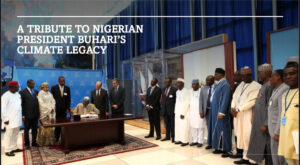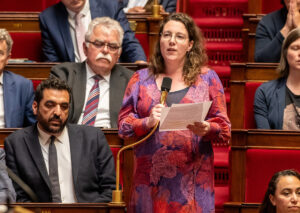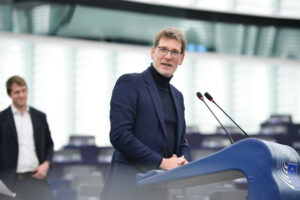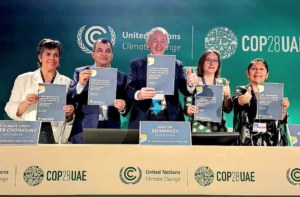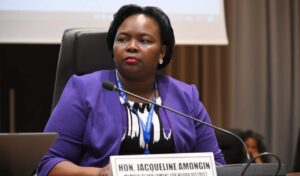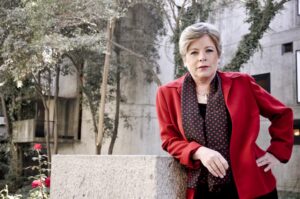Senator Rosa Galvez, a scientist and independent senator from Canada, has been attending COPs since COP14 in Peru. She is a resolute advocate for stronger climate action and parliamentary engagement at COPs. GLOBE invited her to reflect on her experiences and share her key lessons with the wider community of legislators.
18 February 2025
FROM LIMA TO BAKU: A SENATOR REFLECTS ON THE UN CLIMATE CONFERENCES
Senator Rosa Galvez
From Lima to Baku: My Journey Through the UN Climate Conferences
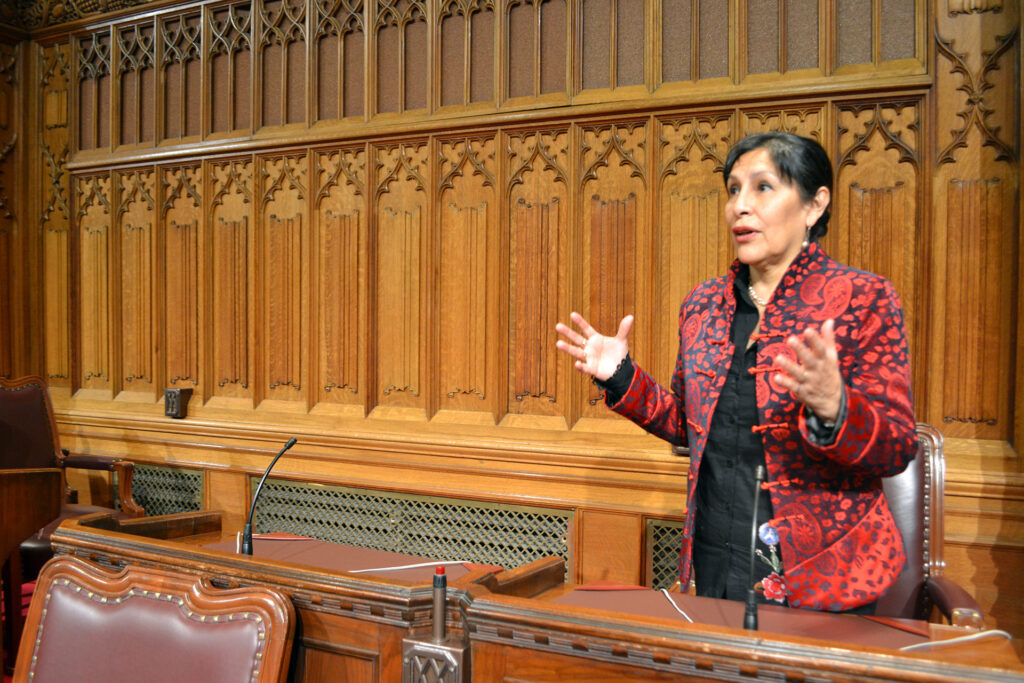
Growing up in the Peruvian Andes, surrounded by breathtaking natural landscapes, I developed a deep reverence for nature. My early experiences guided by my grandparents instilled in me the belief that human progress must not come at the cost of environmental destruction. This conviction led me to pursue a career in environmental engineering, focusing on decontamination and ecosystem restoration. Over the years, my work evolved from scientific research to political advocacy, culminating in my appointment as an independent senator in the Canadian Parliament. Today, I use my position to advocate for ambitious climate policies at both the national and international levels, for example, through my participation at the UN’s Conferences of the Parties (COPs).
My Introduction to COP: Science and Policy Collide
My first COP experience was in 2014 at COP20 in Lima, Peru—my hometown. At the time, I attended as a scientist, eager to learn and contribute to climate discussions. Lima’s conference laid the groundwork for what would become the Paris Agreement, emphasizing the need for Intended Nationally Determined Contributions (INDCs) and climate finance for developing nations. I heard about Green Finance and Green Economy even at that time.
However, I quickly realized that scientific evidence alone was not enough to drive meaningful policy changes. The disconnect between scientific urgency and political action left me discouraged yet determined to bridge that gap. Years later, as a senator, I reengaged with COPs in a new capacity—this time as a policymaker. My role allowed me to advocate for stronger environmental commitments, particularly in climate finance, fossil fuel production reduction, and international cooperation.
Navigating the Political Landscape: A Parliamentarian’s Role in COPs
Since my return to COPs as a senator, I have participated in COP25 (Madrid, 2019), COP26 (Glasgow, 2021), COP27 (Sharm El-Sheikh, 2022), COP28 (Dubai, 2023), and COP29 (Baku, 2024). Each conference provided an opportunity to push for stronger climate action, but it also exposed the deep-seated political barriers slowing down progress. Parliamentarians of the world are insisting and creating an influential platform within COP events. The executive branch should not be only one influencing negotiations and decisions. GLOBE and ParlAmericas are leading these efforts. It is well known that female parliamentarians are more concerned about environmental and social issues, but it is also well known that nation leaders and negotiators are predominantly male. Shouldn’t opening a space for parliamentarians increase the critically needed presence of women in COP events?
At COP25, I witnessed firsthand the overpowering influence of corporate interests. The overwhelming presence of fossil fuel lobbyists—representing industries that directly contribute to climate change—was particularly disheartening. Their efforts to water down climate commitments stood in stark contrast to the urgent calls for action from scientists and vulnerable nations. This experience solidified my resolve to challenge the role of corporate lobbying in climate events.
COP26 in Glasgow was a pivotal moment. It was here that I truly grasped the significance of climate finance as a lever for change. Without the participation of the finance sector, none of the objectives, national or global, will be reached. I participated in several panels advocating for the financial sector to shift investments away from fossil fuels toward renewable energy aligning them with climate goals. Discussions also centered on the $100 billion annual climate finance commitment—a goal that, disappointingly, still lacks full implementation.
At COP27 in Egypt, the establishment of a “loss and damage” fund for developing nations marked a historic step toward climate justice. However, the increased presence of fossil fuel lobbyists (636 compared to 503 at COP26) raised concerns about undue industry influence. This pattern intensified at COP28 in Dubai, where a record-breaking 2,456 fossil fuel lobbyists attended—further proof that vested interests continue to obstruct meaningful progress.
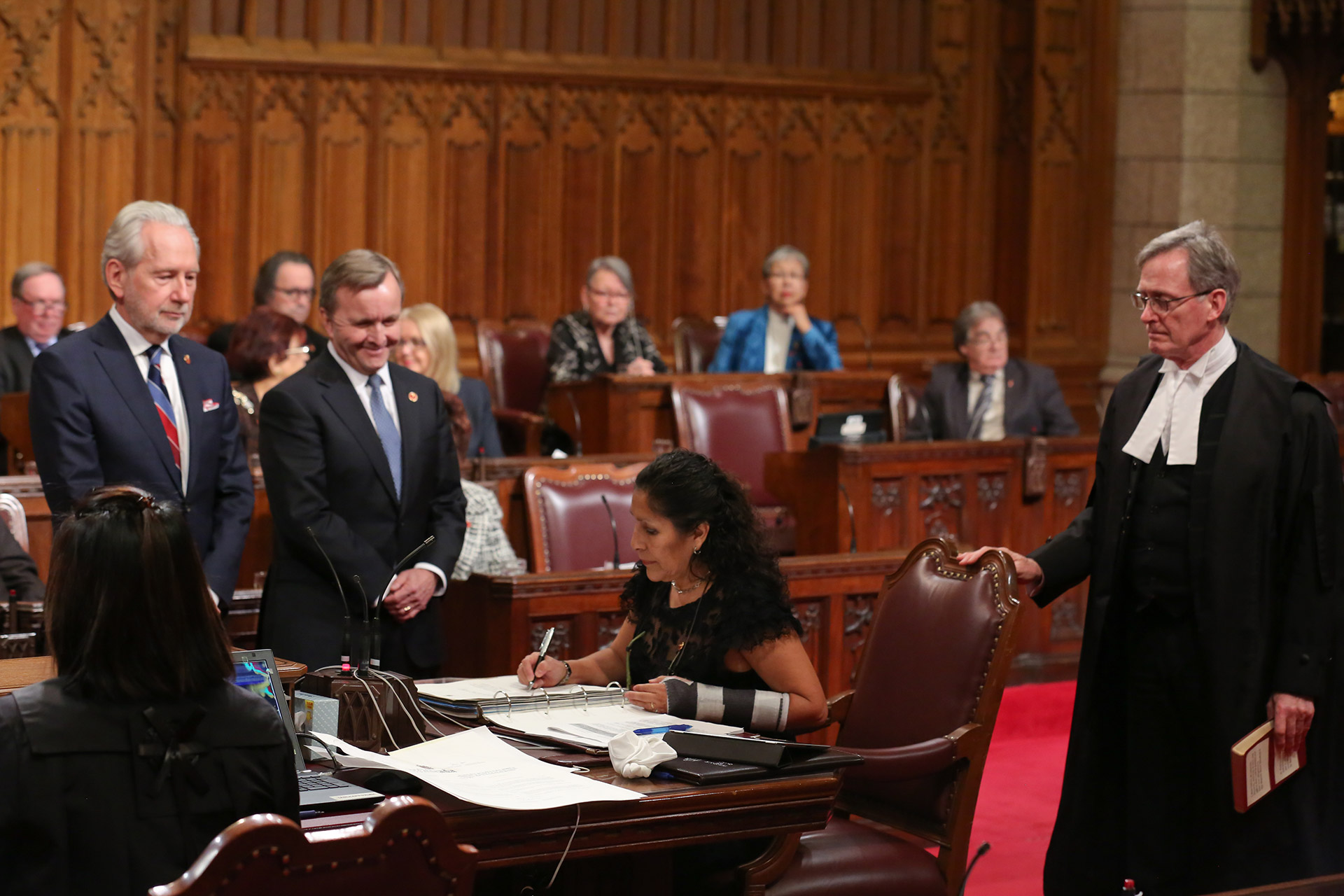
The Roadblocks and the Wins: Progress Amidst Political Stalemates
Despite the growing urgency of the climate crisis, progress at COPs remains unacceptably slow. While the loss and damage fund was a significant achievement, financial commitments continue to fall short. COP28 saw a historic agreement on transitioning away from fossil fuels, but it lacked clear commitments to phase them out entirely. Furthermore, the continued reliance on carbon capture and storage (CCS) technologies—often promoted by fossil fuel companies—threatens to delay real decarbonisation efforts.
COP29 in Baku was particularly disappointing. The final agreement failed to reiterate the call to phase out fossil fuel subsidies, and many critical decisions were deferred. With less than six years left in this crucial decade for climate action, such delays are unacceptable. During 2024 the planet reached the 1.5oC limit temperature increase. It has become clear that the presence of oil and gas lobbyists at these negotiations is not just an annoyance—it is a fundamental barrier to achieving climate goals. Would you sit tobacco producers at the same medical table discussing lung cancer treatments?
Looking Ahead: COP30 and the Path to Greater Ambition
As we prepare for COP30 in Belém, Brazil, I am hopeful that a South American-hosted COP will prioritize the voices of Indigenous communities and nations most affected by global warming. It might be only a dream but places like the Amazon should be exempt from Oil & Gas exploitation as the protection of this area will attain multiple objectives associated to the preservation of biodiversity, keeping Amazon as a Carbon sink and respect of indigenous people lands.
Reflecting on my journey from my first COP in Lima to my recent experiences as a senator, I recognize both the progress we have made and the immense work that remains. COPs have provided a critical platform for negotiations, but the gap between promises and action is still far too wide. My mission remains clear: to fight for policies that protect our planet, hold polluters accountable, and ensure that financial mechanisms support a fair and just transition.
As a senator, an engineer, an environmental advocate, mother and grandmother, I am committed to ensuring that the decisions we make today secure a sustainable future for generations to come. The time for half-measures is over—at COP30 and beyond, we must demand real action, real accountability, and real climate justice.



